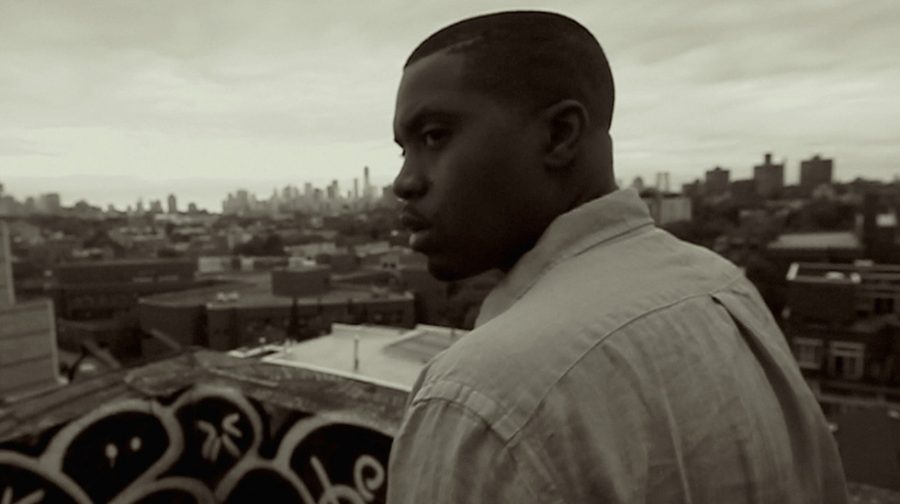In our current celebrity-obsessed climate, we are constantly looking for opportunities to catch glimpses of the humans behind our heroes. There is something particularly satisfying in identifying the real, bonafide person which lurks beneath that mystical, pop-culture veil; we are able to recognise similarities between us and them and kid ourselves that, really, we are not so very different from one another. One9’s new documentary, Time is Illmatic, promises just this, revealing the man behind the hip-hop legend, Nas – Nasir bin Olu Dara Jones.
It is this kind of film for which fans have been waiting two decades, ever since Nas appeared explosively on the scene with his revolutionary debut album, Illmatic. One9 offers insight into the musical process behind this genius; presenting interviews with the many artists who feature on the album, he delves into the stories and anecdotes that inspired that beat and this hook. Pete Rock, Large Professor, Q-tip – the list goes on – all talk candidly and intelligently about both their own and Nas’s artistic methods, informing those who didn’t know and indulging those who did.
Beginning with Queensbridge, the film somewhat offers the backstory to Nas’s musical identity. It doesn’t quite go far enough, however, becoming repetitive in content and over-sentimental in tone. The film relies heavily on old footage of Nas’s father, Olu Dara (b. Charles Jones III), giving it nostalgic value, yet failing to offer viewers any new insight into the musician’s life. Many questions are left unanswered, and many important events avoided – most notably the death of his mother, Fannie Anne Jones, and his marriage to Kelis Rogers (Kelis). There is a sense that, rather than an in depth exploration into Nas’s life and musical history, we are offered a very specific and somewhat superficial narrative. Despite being entrenched in a culture of gang-warfare and crime, it all progresses a little too smoothly (and slowly).
Thus, while offering beautiful cinematography and glimpses into Nas’s childhood and artistic world, the film is also a little unsettling. His brother, Jungle (b. Jabari Fret Jones), features heavily – always with spliff or drink in hand – yet there is something mournful and deeply uncomfortable about him. We can feel that something is being withheld. This is definitely a film to watch, yet rather than revealing the man, it does more to reinforce the myth that shrouds him.
